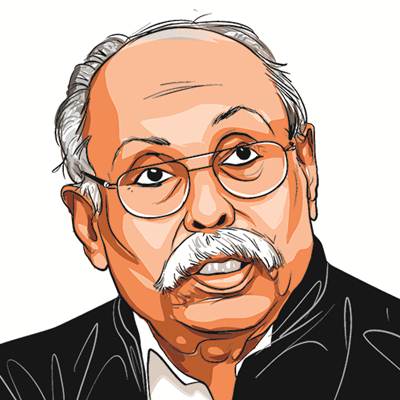Opinion Power of numbers
Census 2011 must identify Backward Classes....
In his article in these pages (The futility of a caste census,IE,November 14) eminent sociologist A.M. Shah has expressed apprehensions about a caste census in the 2011 Census. He mentions many difficulties which will make a caste census impracticable and futile. He points out that what is your caste? is a complicated question and the Census cant address its ambiguities.
Knowledgeable sources like the National Commission for Backward Classes (NCBC),and myself personally have never suggested a caste census,but only a census of socially and educationally backward classes/other backward classes (hereafter BCs) in the same way as scheduled castes (SCs) and scheduled tribes (STs) are covered in every Census. In a BC census,the difficulties mentioned by Shah would not arise. There is no need to ask the question What is your caste? In the case of SCs and STs the Census enumerator hands over to the respondent the state schedule of SCs/STs or reads it out to him,if illiterate,and asks him whether he belongs to any of the castes/tribes therein,and if so which. In the case of BCs also,it is necessary to follow only the same procedure. There is a central list of BCs for each state.
Population and other information in respect of BCs are required for two reasons. On the positive side,it is necessary for better developmental planning for each category of BCs with the goal of eliminating the backwardness of each of them and bringing every BC to the level of upper castes on every economic,educational and social parameter. On the negative side,it is necessary to silence the repeated attack,in numerous writ petitions,against reservation for BCs on the ground that their population is not known,though the BCs are not responsible for this lacuna. The Supreme Court has on every occasion rejected this argument but it will still continue to pop up again and again. There is a misconception that SCs and STs are constitutionally recognised categories but BCs are not. This is not true. The constitutional recognition of SCs and STs are in articles 341 and 342 and for BCs in article 340. Only,there was gross delay in implementing article 340 at the central level till as late as 1990,though lists of BCs were made in the peninsular provinces and princely states even before Independence. The total number of BCs for all states in the central list is only 1963,not a forbidding or formidable number compared to SCs and STs.
Following a Parliamentary Committee Report,the Census Commissioner enumerated recently various difficulties in conducting a census of BCs. For example,he raised the issue of differences between the central list and Sstate list which raises doubts about which list should be followed. Differences between the central and state lists are minimal and are mainly in two or three states. Certain communities included in those state lists in the past were rightly excluded from the central list. In any case,Census is a central operation by a central organisation and has to follow only the central list. A number of communities mentioned by Shah like Marathas,Jats (except in a part of Rajasthan),Kammas and Reddys will not have to be covered by a BC census because they are not in the central BC list.
Many oppressed/depressed castes/communities have assumed suffixes pertaining to upper castes/communities or new high-sounding names. This is true of BCs including BC Muslims as well as SCs. Some examples are Andhra Pradeshs Nayi-Brahmin,Delhis Jangid Brahmin,and Bengals Rajbanshi. There is no doubt or confusion about their identity because the state BC commissions,Mandal Commission,Central Expert Committee of 1993 and NCBC have done a thorough job of listing all such synonyms of each caste in a single entry. Migrants also do not pose a problem. Usually they carry with them their original name,like UPs and Bihars Rajbhar migrants in Punjab and Haryana and Bundelkhands Lodh migrants to AP.
Inter-caste,inter-religious,inter-regional or international marriages mentioned by Shah are also not a problem. These are still rare and are mostly among metropolitan,cosmopolitan,migrant non-BCs and do not come into the picture of the BC census. As noted by the landmark Mandal judgement,the general practice even for non-resident Indians is to seek spouses for their children from the same caste back in India. In the rare instances of SC-non SC spouses and their children,Supreme Court judgements have provided guidance. They would also apply to the rare cases of BC-non BC marriages.
The question then boils down to who should conduct the BC census. The Census organisation says that it cannot take on the additional burden and wants it to be left to state BC commissions. These commissions and the NCBC are far behind the census organisation in infrastructure and capability. It is only the central Census organisation that can undertake this. It should be strengthened to the extent necessary for this inescapable task. The Government of India will have to take urgent decisions on this so that Census 2011 is also not lost.
The writer is former secretary to the Government of India





